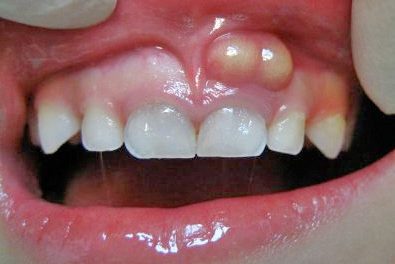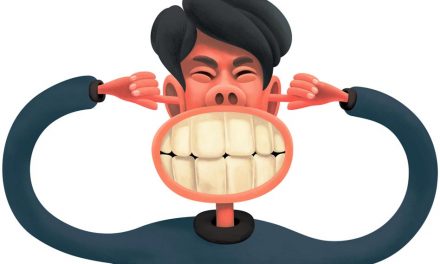 Dry mouth, or xerostomia, is a state where there is a lack of saliva flow in your mouth. If not treated, xerostomia can lead to problems with eating, talking and initiate halitosis (bad breath). It can also aggravate periodontal disease and trigger an increase of the number of cavities.
Dry mouth, or xerostomia, is a state where there is a lack of saliva flow in your mouth. If not treated, xerostomia can lead to problems with eating, talking and initiate halitosis (bad breath). It can also aggravate periodontal disease and trigger an increase of the number of cavities.
Dry mouth has many causes, and it’s sometimes possible to treat it or at least make it more comfortable. Saliva is important to keep your mouth moist and your teeth clean. It neutralizes acids produced by dental plaque and gets rid of dead cells that accumulate on the gums, cheeks and tongue. Saliva also prevents infection by reducing the number of bacteria and fungi in your mouth. And when it comes to nutrition, saliva helps to digest food by making it soft.
There are a few problems that may arise from dry mouth:
- The risk of having gum disease increases with dry mouth.
- The risk of tooth decay also increases because saliva limits bacteria growth and does a partial cleaning of food debris and dental plaque.
- Saliva improves the ability to taste and swallow foods. Moreover, enzymes contained in saliva help to digest these foods. Xerostomia therefore compromises eating because it reduces the ability to appreciate foods and to digest them.
- Dry mouth can also make it difficult to dentures and partials because contact on dry gums is difficult, and can also be painful.
The information above should be used as a reference only. Any medical decision should not be taken before consulting a health care professional.
The masculine gender may have been more used in the article, but without prejudice, to make reading easier.
Category: general health
- Bisphosphonates and oral health care
- Can dry mouth be harmful?
- Cancer treatments and oral health
- Ebola virus disease
- Heart disease and dental care
- How smoking affects dental and oral health
- Pregnancy and dental care
- Sexual hormones – are women more susceptible to cavities?
Category: questions and answers
- Are dental x-rays safe for pregnant women?
- Are teeth alive?
- At what age do children’s teeth start coming out?
- Can an abscess cause a tooth to break apart?
- Can dry mouth be harmful?
- Can heart disease be related to dental care?
- Can teeth grinding affect children?
- Can wisdom teeth move other teeth?
- Can you drink alcohol after tooth extraction?
- Do you have to remove retainers or orthodontic appliances when you eat?
- Does chewing gum after a meal help eliminating dental plaque?
- Does chewing gum eliminate bad breath?
- For which sports should you use a mouthguard?
- How can smokers take care of their oral health?
- How can you get rid of a tooth abscess?
- How can you get rid of an ulcer or a canker sore on your tongue?
- How can you prevent a tooth abscess?
- How can you reduce the effects of dry mouth?
- How can you tell if you have a tooth abscess?
- How can you tell that you are grinding your teeth?
- How can you tell that you have dry mouth?
- How can you treat a tooth abscess?
- How can you treat dry mouth?
- How can you treat teeth grinding?
- How does smoking affect oral health?
- How does smoking affect overall health?
- How is infective endocarditis related to oral health?
- How long does it bleed after wisdom teeth extraction?
- How long does the numbing last after a dentist appointment?
- How many teeth are there in the mouth?
- How soon after tooth extraction can you use a straw?
- How thin are dental veneers?
- Is a root canal painful?
- Is amalgam in teeth (grey fillings) bad for your health?
- Is it necessary to place a dental crown on a tooth that had a root canal?
- Is it normal for gums to bleed when you brush your teeth?
- Is it painful to place a dental implant in your mouth?
- Is smoking bad for your teeth?
- Is there a relationship between dental problems and overall health problems?
- Should people that had a heart attack take precautions when undergoing dental treatments?
- Should people that have a pacemaker take special precautions with their dental care?
- Should people that have had coronary artery bypass surgery take special precautions with their dental care?
- Should people that suffer from congestive heart failure take special precautions with their dental care?
- Should people with angina take precautions when undergoing dental treatments?
- Should people with high blood pressure take precautions when undergoing dental treatments?
- What are the advantages of silver fillings?
- What are the symptoms of having a tooth abscess?
- What can you eat after wisdom teeth extraction?
- What diseases might cause you to have dry mouth?
- What lasts longer, grey or white fillings?
- What may happen if you don’t treat a cavity?
- What might cause you to grind your teeth?
- What might happen if you don’t treat a tooth abscess?
- When can you eat and drink after a tooth filling?
- When can you play sports after wisdom teeth surgery?
- When can you smoke after a tooth extraction?
- When do dissolvable stitches fall out after wisdom teeth extraction?
- Where does a tooth go after extraction?
- Which is better retainers or braces?
- Why are wisdom teeth called “wisdom teeth”?
- Why is teeth-grinding bad for you?
- Why you should not smoke after tooth extraction?
- Will taking antibiotics make the colour of your teeth darker?





